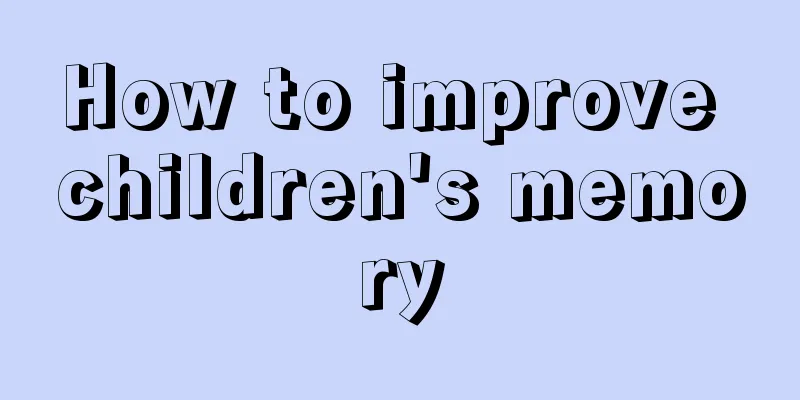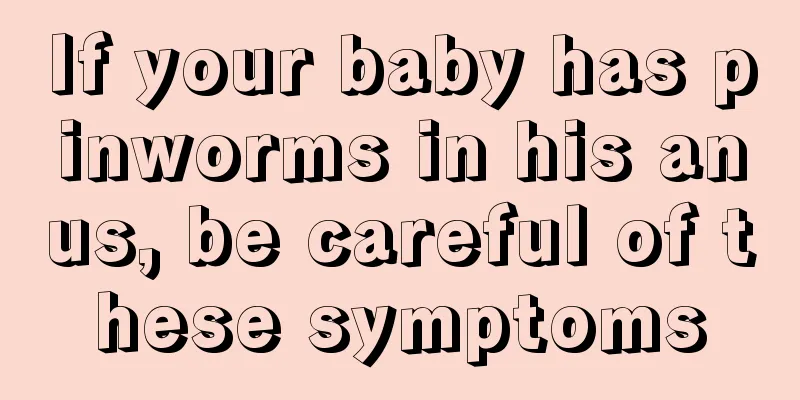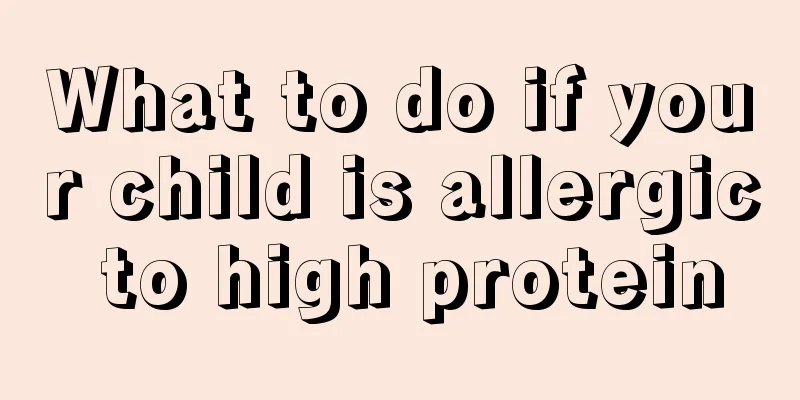What should I do if my baby has a fever due to gastroenteritis?

|
Gastrointestinal inflammation has a great impact on the baby's body, often causing great pain to the baby and making the baby cry incessantly. The most serious harm is the impact on the baby's growth and development, causing the baby to have developmental delays, etc. Gastrointestinal inflammation can easily lead to other associated symptoms. For example, fever is also a disease that is often associated with gastrointestinal inflammation. Let's take a look at what to do if your baby has a fever due to gastrointestinal inflammation. You can learn about the symptoms of these two types of gastroenteritis. 1. Bacterial gastroenteritis Common bacteria that cause bacterial gastroenteritis include Salmonella, Staphylococcus aureus and Escherichia coli. Especially in the hot summer, food can easily breed Staphylococcus aureus. If you are not careful and eat unclean food, you may start to experience severe abdominal pain, diarrhea, fever after infection, and in severe cases, dehydration may occur, causing the baby to be in poor spirits. 2. Viral gastroenteritis Viral gastroenteritis is common in seasons with alternating cold and hot weather. The most common viruses are rotavirus and norovirus. Although viral gastroenteritis can also cause symptoms such as vomiting or diarrhea, it usually improves slowly within 1-2 days. Moreover, if the baby has been infected before, it will also produce an immune effect and alleviate the symptoms. Dietary tips: For babies aged 0-6 months, in addition to taking small meals frequently, if they are formula-fed, it is recommended to dilute the brewing ratio or switch to lactose-free formula; if they are breastfed, continue to breastfeed as usual. For babies over 6 months old who start to try complementary foods, if they are eating formula milk, the concentration of the formula milk should be adjusted according to the diarrhea situation, or lactose-free formula milk can be switched. If the diarrhea is severe, stop feeding complementary foods or reduce the amount to 1-2 types. As for the weaning period of 1-2 years old, the baby should eat small meals frequently and avoid giving milk, dairy products, sweets or greasy foods to prevent lactose intolerance from worsening and causing chronic diarrhea. Unless fasting is required due to persistent severe vomiting, liquid food should be given and appropriate water should be supplemented to reduce complications such as dehydration. |
<<: What should I do if my baby has gastroenteritis?
>>: What should I do if my child gets electrocuted?
Recommend
What causes knee pain in children?
The knee joint, which is composed of bones such a...
Why does my five-month-old baby keep shaking his head when sleeping?
Every child’s situation is different, and parents...
What to do if an 8-year-old child has a stuffy nose?
Children's bodies have very poor ability to r...
What should I do if my child has a low-grade fever?
1. Massaging acupoints for a low fever is very un...
Causes of cold hands in children with fever
A baby needs to go through many things during his...
What to do if your child always loses his temper
Children love to lose their temper and parents ar...
What to do if your child has a persistent high fever
High fever is a particularly dangerous symptom fo...
What can children eat to improve their immunity?
If a child has low immunity, he or she is very li...
What kind of yogurt is better for a 1-year-old?
Can a one-year-old baby drink yogurt? What kind o...
Sleeping time for babies over 2 months old
Babies over two months old are still in the infan...
Can children with intellectual disability be cured?
The healthy development of children depends not o...
How often should a three-month-old baby eat?
It is still better not to give too much complemen...
Treatment for separation anxiety in young children
When children reach the age to go to kindergarten...
Young children have leucorrhea-like discharge. Let's find out the reasons behind it.
It is very common for adult women to have vaginal...
Fever three days after vaccination
I believe everyone knows that babies need to be v...









